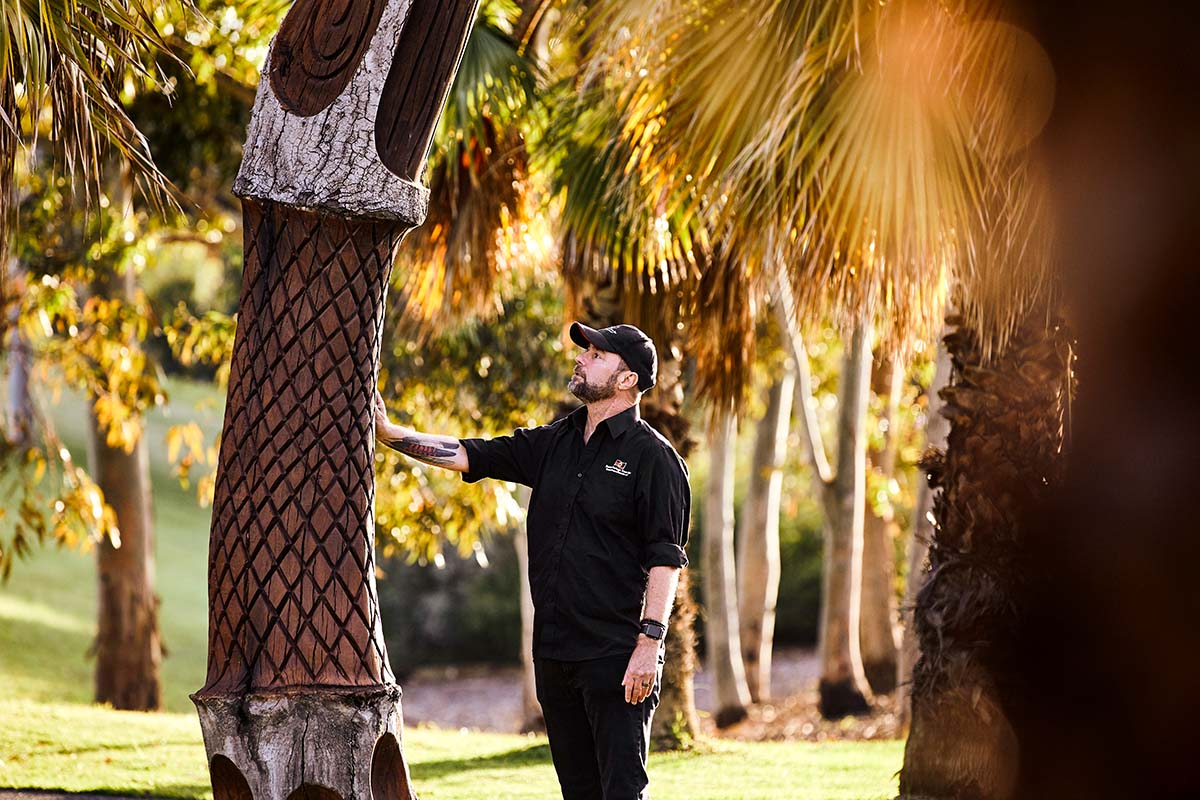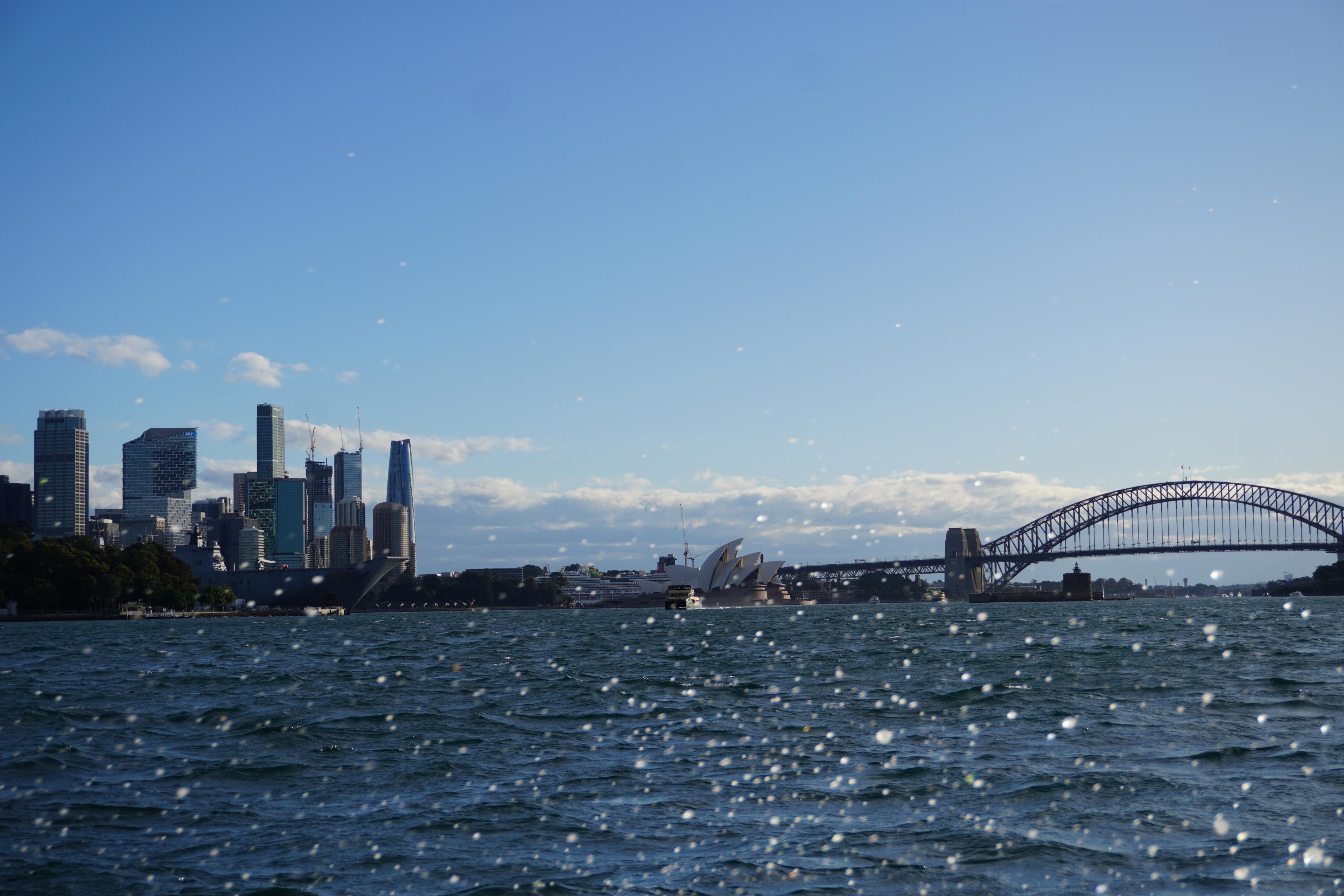Join/
Travel Spotlight
Q&A with Australia Tourism and Aboriginal Community Experts: Nicole Mitchell and Rob Hyatt
For many Indagare members, what really “makes” a destination is the people and their culture. That people-first mindset is especially apparent in Australia, where a diverse population of Indigenous groups has called the land home for 65,000 years. “The rich cultural heritage of our Aboriginal people is something that truly sets our country apart from other destinations around the world.” says Nicole Mitchell, the Executive Officer at Tourism Australia. Nicole has been marketing Australia and working closely with Indigenous businesses for over 25 years.
The relationship between Indigenous culture and tourism is complex, and the two years of significant decreases in tourism due to Covid have brought more attention to the challenges. “Tourism can be a powerful driver for positive change and the sustainability of culture. It plays a significant role in building and supporting new creative, cultural, economic and social opportunities for Aboriginal communities,” says Nicole.
Back in 2008, Tourism Australia developed the Discover Aboriginal Experiences collective (DAE), allowing travelers to connect more deeply with the country through the DAE experiences. One member of this collective is the Koorie Heritage Trust, a non-profit organization in central Melbourne. “One of the most important roles of the Trust since 1985 has been to preserve and protect the unique Aboriginal cultural heritage in Victoria,” says Rob Hyatt, the organization’s Cultural Education Manager and an Aboriginal man himself.
Read on for a Q&A with both Nicole Mitchell and Rob Hyatt, and learn how Covid impacted Aboriginal tourism, why engaging with Indigenous cultures is so important and how you can enrich your own travel through Indigenous experiences in Australia.
Q&A with Nicole Mitchell of Tourism Australia and Rob Hyatt of the Koorie Heritage Trust
What does it mean to be a member of the Discover Aboriginal Experiences program?
: “Each member in this collective is considered a leader in Aboriginal tourism, with over 170 experiences from 46 business around Australia, all led by Aboriginal guides. Tourism operators looking to participate in our DAE collection must meet a range of criteria, all of which align with Tourism Australia’s priorities, the Australia brand and our vision. Our rigorous membership selection process ensures that with every experience guided by an Indigenous knowledge holder, guests can be assured of an authentic and meaningful interaction with Aboriginal cultures. We are proud to have Koorie Heritage Trust as one of our esteemed members.”
At the Koorie Heritage Trust, which of your programs are particularly valuable for the Aboriginal communities?
Rob Hyatt:“It is difficult to pick one program or aspect of our organization that would be of particular importance over another.
The education programs we offer support the broader community's knowledge to engage respectfully with Aboriginal peoples and communities, and in doing so, support service programs and employment opportunities for members of our communities. Our tours do the same, and also provide an awareness of the living presence of Aboriginal culture in our city. Meanwhile, our public workshops offer access to knowledgeable and skilled Aboriginal artists.
Our collections, galleries and exhibitions exist to protect and give voice to our culture, both traditional and contemporary. Our galleries and shops create opportunity for Aboriginal artists and businesses to sell their product—for some this is their only outlet through which to do so. Lastly, the Family History Unit supports the connection of Victorian Aboriginal people to their genealogy and family trees, which is particularly important for those impacted by the Stolen Generation.”
The Stolen Generations: The forced removal of thousands of Aboriginal children by the Australian government between 1910 and 1970, with the aim of assimilating them into white society and erasing Aboriginal culture.
Which of your programs are particularly valuable for international visitors?
Rob Hyatt:“Our international visitors typically have a strong interest in the history of Australia as well as the experience of engaging with Aboriginal culture in the city (particularly in Melbourne). Our galleries, exhibitions and collections provide an opportunity to visually engage with that culture, with tours and visitor experience guides lending stories to the works on display. The tours also offer a broader understanding of our traditional culture and landscape, the impact of settlement and our culture today, particularly in the urban environment."
Where do the art and pieces on display come from?
Rob Hyatt:“The exhibitions are changed approximately every three months. Shows vary from individual artist exhibitions to themed exhibitions with contributions from various artists and artwork from the Koorie Heritage Trust collections. Our largest show each year, The Koorie Arts Show, is developed through a call-out and nomination process, open to all Aboriginal artists across Victoria from our best known and established artists to new artists exhibiting works for the first time.”

How did Covid impact the Aboriginal communities of Australia?
Nicole Mitchell: “There is no doubt that the last few years have been incredibly challenging. The tourism industry was one of the hardest hit, and it will be one of the last to fully recover.
Prior to the pandemic and the 2019 to 2020 summer bushfire crisis, tourism was one of the fastest-growing sectors of the Australian economy, contributing more to the economy than mining, agriculture and financial services. Across the country, tourism has supported one in 13 jobs (or 666,000 Australians) and is the lifeblood for many Australian communities, with 44 cents of every tourism dollar spent in our regions.
We also know that prior to Covid, the demand for Aboriginal guided experiences was strong and growing, and now that our borders are open again, interest is incredibly high. In 2019, 1.4 million international visitors took part in an Indigenous tourism experience. This is compared to 820,000 international visitors in 2010. The compounded average growth rate over the nine-year period since 2010 is 6 percent per year.”
And on a more micro scale, how did Covid impact the way the Koorie Heritage Trust handled programming?
Rob Hyatt:“The Koorie Heritage Trust was closed during Covid lockdowns, but we maintained and then increased the delivery of our cultural competency and cultural workshops by shifting to online delivery. Through compilations of images and videos, as well as the voices of our cultural guides, we were able to create virtual tours for our clients. Regarding our exhibitions, we continued to run new shows, accessible through virtual tours with our CEO and artists.”
On the flip side… were there any perceived benefits to the period without any mass tourism?
Nicole Mitchell: “There are some positive stories. Some businesses even performed better than in prior years due to domestic travel.
With international travel on hold and a big gap to fill (9.4 million people come to Australia each year), we at Tourism Australia asked Australians to ‘Holiday Here This Year,’ and we were pleased that, when given the chance, they did. Pre-pandemic the typical domestic leisure trip might have included a fly- or drive-and-flop beach holiday, with many Australians saving their money for the big overseas trip.
Through our campaign, we encouraged Australians to travel in Australia like they would internationally—seeing more, traveling further afield, doing more in the way of experiences and taking some of those really aspirational trips that they might have been putting off. It was great to see more and more Australians explore their own backyard, supporting the many communities that rely on tourism.”
How are these benefits being prioritized and learned from now that Australia has reopened?
Nicole Mitchell:“There are incredible destinations and tourism experiences right here on our own doorstep. Even now with international borders open, we can still head off on the domestic holiday of a lifetime and tick some items off our holiday bucket list, including cultural experiences.
I hope this will be a legacy and the silver lining for our time of being unable to travel abroad—that we have all fallen in love with our wonderful country again and gained a greater understanding of our rich Indigenous heritage through tourism experiences.”
At the Koorie Heritage Trust, has Covid impacted the way you think about new exhibitions?
Rob Hyatt:Online access through virtual tours and talks with the artists that are being exhibited, which we will be continuing to offer going forward.
As Australian travel (both domestic and international) ramps up again, has there been any shift in how Tourism Australia advances the cause of Aboriginal Australians?
Nicole Mitchell:“We know our Indigenous story is significantly growing in appeal both domestically and internationally...DAE leads the way in this, promoting experiences across Australia in all key markets via our distribution and media partners. Our research shows us that the more we tell visitors about our Indigenous story the more interest there is.”
What do you see and hope for in the future of Australian tourism?
Nicole Mitchell:“Today’s conscious traveler is increasingly looking for a real connection to the land and sea, and a new way of experiencing it—exactly the kind of life-changing and immersive experience that Aboriginal Tourism can provide.
While it is difficult to predict exactly what tourism will look like, we can expect travelers to have a greater desire to seek out less crowded attractions and destinations, as well as nature-based cultural experiences in small groups and a connection to country they're visiting.
I am most hopeful to continue the growth path that we are on, whereby increasingly travelers have meaningful connections to people, place and culture in Australia and learn about the world’s oldest living culture that—whilst steeped in history—is always evolving.”
Plan Your Trip With Us
We only feature hotels that we can vouch for first-hand. At many of them, Indagare members receive special amenities.
Get In Touch


